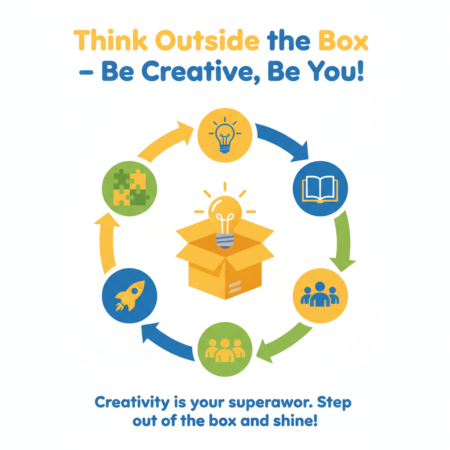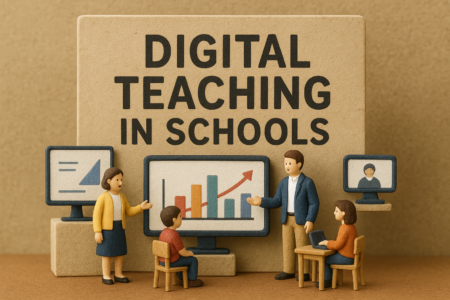Introduction
Failure is often viewed as a negative outcome, but in reality, it is an inevitable part of the learning process. Every setback, mistake, and misstep presents an opportunity for growth and improvement. In this blog, we explore the importance of learning from failures and embracing mistakes as stepping stones to success. By reframing failure as a valuable learning experience, we can cultivate resilience, creativity, and perseverance in our educational journey.
The Role of Failure in Learning
Failure is a natural and necessary part of the learning process. It provides valuable feedback, highlights areas for improvement, and fosters resilience and perseverance. Instead of avoiding failure, learners should embrace it as an essential component of growth and development. By reframing failure as a temporary setback rather than a permanent defeat, learners can approach challenges with greater confidence and resilience.
Failure serves as a powerful teacher, offering lessons that cannot be learned through success alone. When students encounter failure, they are forced to reassess their strategies, reconsider their assumptions, and adapt their approach. In doing so, they develop resilience, problem-solving skills, and a deeper understanding of the subject matter.
Changing Perspectives on Failure
In traditional educational settings, failure is often stigmatized and viewed as a reflection of incompetence or inadequacy. However, a growing body of research suggests that failure can be a powerful catalyst for learning and innovation. By reframing failure as a natural and inevitable part of the learning process, educators can create a culture of experimentation, risk-taking, and growth in the classroom.
The concept of “failing forward” emphasizes the idea that failure is not an endpoint but a stepping stone to success. When students fail forward, they view failure as an opportunity to learn, grow, and improve. This mindset shift encourages students to take risks, try new approaches, and persevere in the face of adversity.
Embracing a Growth Mindset
A growth mindset, as coined by psychologist Carol Dweck, is the belief that intelligence and abilities can be developed through effort, practice, and learning. Embracing a growth mindset encourages learners to see failures not as a reflection of their abilities but as opportunities for growth and improvement. By cultivating a growth mindset, learners can approach challenges with resilience, curiosity, and a willingness to learn from their mistakes.
A growth mindset fosters a sense of agency and empowerment, empowering students to take ownership of their learning and pursue their goals with confidence and determination. When students believe that their abilities can be developed through effort and practice, they are more likely to persevere in the face of obstacles and view setbacks as opportunities for growth.
Learning from Failure: Case Studies
Thomas Edison:
Thomas Edison, the inventor of the light bulb, famously remarked, “I have not failed. I’ve just found 10,000 ways that won’t work.” Despite facing numerous setbacks and failures in his quest to invent the light bulb, Edison remained undeterred in his pursuit of innovation. His willingness to learn from his mistakes and persevere in the face of failure ultimately led to one of the most transformative inventions in history.
J.K. Rowling:
Before achieving success as the author of the Harry Potter series, J.K. Rowling faced rejection from multiple publishers. However, Rowling refused to give up on her dream and persisted in her writing efforts. Her resilience in the face of failure ultimately paid off, leading to one of the best-selling book series of all time.
Strategies for Learning from Failure
- Reflection:
Take time to reflect on your failures and mistakes, analyzing what went wrong and what could be done differently in the future. Reflection provides valuable insights for improvement and helps identify areas for growth. - Seek Feedback:
Solicit feedback from peers, mentors, or instructors on your performance and areas for improvement. Constructive feedback can provide valuable perspectives and insights that may not be apparent to you. - Experimentation:
Approach challenges with a spirit of experimentation and curiosity. Don’t be afraid to try new approaches or take calculated risks, even if they may result in failure. Experimentation fosters creativity, innovation, and resilience. - Perseverance:
Cultivate a mindset of perseverance and resilience in the face of failure. Remember that setbacks are temporary and can be overcome with determination, effort, and a willingness to learn from mistakes.
Fostering a Culture of Learning and Growth
Educators are pivotal in cultivating an environment where failure is viewed as an integral part of learning. By fostering a supportive atmosphere that encourages risk-taking and mistake-making, teachers empower students to embrace failure as a valuable learning opportunity. Here’s how educators can contribute to this culture of growth:
- Establish Psychological Safety:
Create a classroom where students feel safe to express themselves without fear of judgment. - Encourage Risk-Taking:
Encourage students to step out of their comfort zones and explore new ideas. - Normalize Failure:
Help students understand that failure is a natural part of the learning process and not a reflection of their worth. - Provide Constructive Feedback:
Offer feedback that focuses on growth and improvement rather than evaluation. - Model Growth Mindset:
Demonstrate resilience and a willingness to learn from mistakes. - Foster Collaboration:
Encourage collaboration and peer support among students.
In doing so, educators can inspire students to develop resilience, perseverance, and a positive attitude towards failure, ultimately facilitating their academic and personal growth.
Celebrating Successes and Failures
In the journey of learning, both successes and failures are worthy of celebration. While successes validate our efforts and achievements, failures provide valuable opportunities for growth and improvement. By celebrating both successes and failures, we cultivate a culture that values learning, resilience, and perseverance in the pursuit of excellence.
Conclusion
Failure is not the end of the road but rather a stepping stone to success. By reframing failure as a natural and inevitable part of the learning process, we can cultivate resilience, perseverance, and creativity in our educational journey. Embracing mistakes, learning from failures, and maintaining a growth mindset are essential components of a transformative learning experience. As we navigate the challenges and opportunities of education, let us embrace failure as a valuable teacher and catalyst for growth, innovation, and success.







